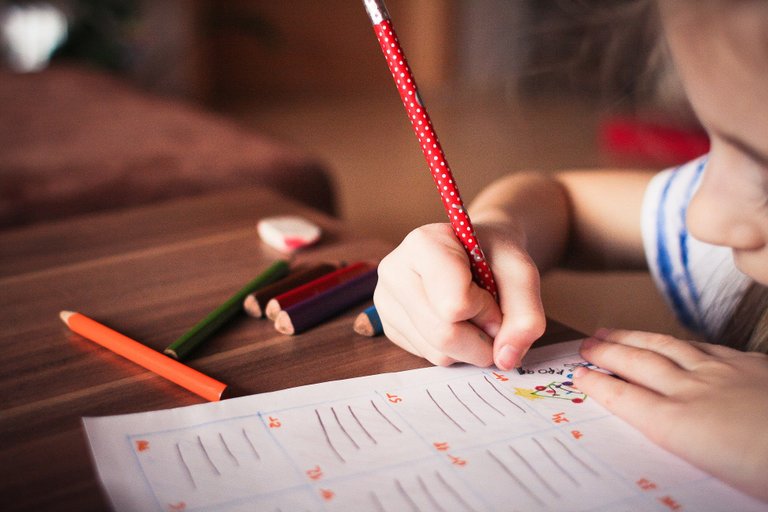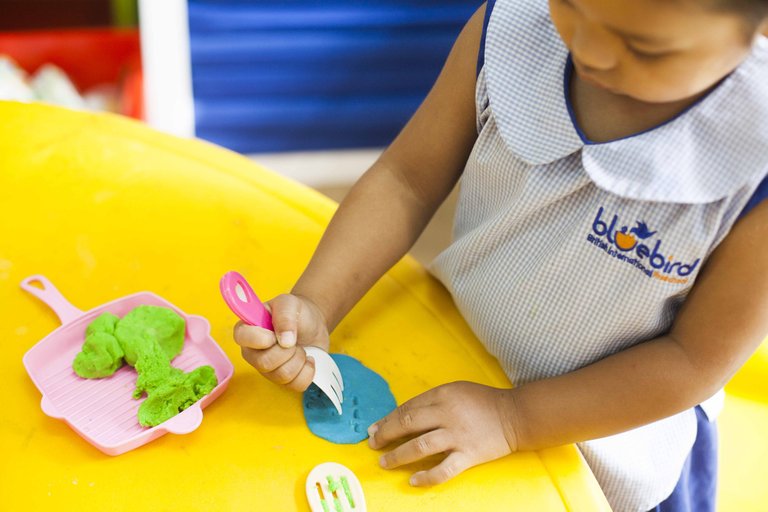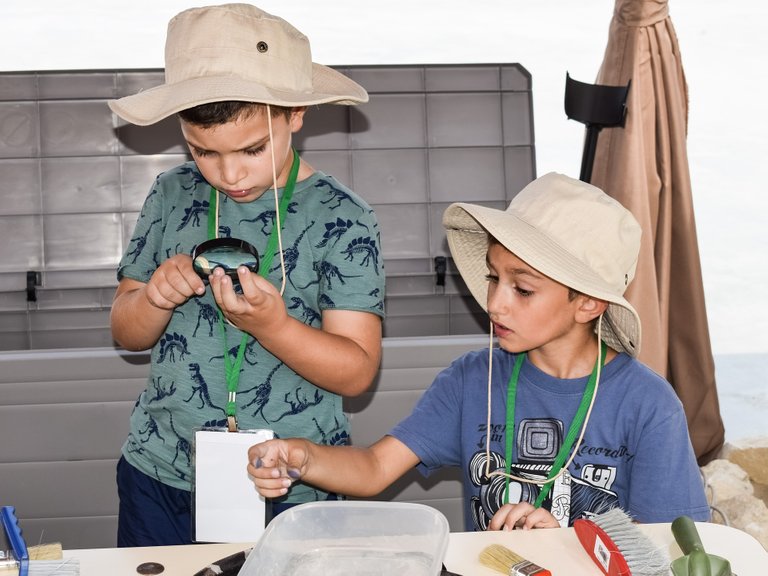
Play is the exploitation of kinetic and mental energy at the same time through an activity, either directed or not directed, by children to achieve pleasure and entertainment in a direct way.
And play, regardless of its many forms, is considered a type of free activity practiced by a living being an automatic practice, and it is intended only as the pleasure of practicing it, and it is considered a general innate tendency even if its forms differ from age to another and from society to another.
There are two types of play:
1 - Guided Play:
It is the play that is equipped with distinctive games within the plans, programs and goals set by adults and implemented by children.
2- Unguided play:
It is the play that is from the fabric of the child's imagination and innovation, based on his environment, such as games that come automatically from the child's self.

The benefits of learning by playing and the types of educational games
The child reaps several benefits from educational games, including:
He asserts himself through superiority over others, individually and in the group.
Learn to cooperate and respect the rights of others.
He learns to respect and abide by laws and rules.
It strengthens his affiliation to the group.
It helps in the growth of memory, thinking, perception and imagination.
Gains self-confidence and dependence and makes it easy to discover and test his abilities.
Play is a compensatory activity that relieves the child of his negative emotions.
By playing the child gets rid of the tension that he has generated as a result of restrictions and pressures
It is imposed on him by emptying his emotions and suppressing him through playing.
Play is an activity that enhances a child's self-confidence. When the child plays an educational game, he meets with the encouragement of adults, and their acceptance of this game, this strengthens his self-confidence.
Play leads to discovering the negative relationships of the child. Through play, the teacher discovers what the student suffers, for example, from negative emotions or habits such as aggression, love of possession, selfishness and deprivation.
Play helps the child to explore. When the child rises with a group that represents a certain role of the “doctor” professions, he knows in a direct way the means and tools he uses, and the importance of this profession and the role of each of the other professions in serving society.
Play helps to form remedial instructional situations. Play is important for studying children, analyzing their personalities, diagnosing the causes of what they suffer from problems and emotions, reaching the level of mental illnesses. It is also considered a way to treat emotional disorders, as the teacher automatically discovers the child's desires, tendencies and trends, and provides him with what he needs in terms of help and guidance.

Types of educational games:
Dolls: such as hunting tools, cars and trains, animal shapes, machines, decorative tools ... Etc.
Movement games: throwing and throwing games, assembly, racing, jumping, wrestling, balance and swing, running, ball games.
Intelligence games: such as puzzles, problem solving, crossword puzzles, etc.
Role-playing games: such as stage acting, role-playing.
Singing and dancing games: pretend singing, imitating songs, chants, folk dancing, etc.
Games of chance: dominoes, snakes and ladders, guessing games.
Cultural stories and games: poetry contests, expression cards.
A-Features of learning style to play:
1- A regular activity with its own rules and laws.
2- The play is independent and takes place within a specific time and place.
3- It urges competition and perseverance.
4- It brings pleasure and pleasure.
5 nurtures the spirit of cooperation.
6 saturates the child's physical and mental needs, and uses the body's motor and mental energies without getting tired.
B- Learning-to-play style functions:
1- Play is a tool for learning, discovery and development.
2- A tool for developing the cognitive, cognitive, social and emotional aspects.
3- A tool to get rid of social repression and pressure.
4- A tool to solve the child's personal problem.
5- A tool for exploratory learning and acting.
